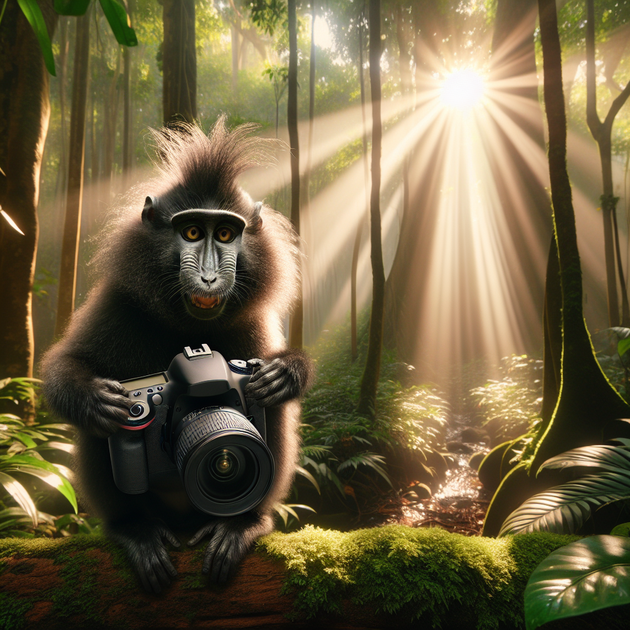The Wild Macaque Selfie That Changed Copyright Law Forever
What happens when a monkey snaps a photo—and it goes viral around the world? Back in 2011, this exact scenario played out with what’s now known as the “macaque selfie.” It sparked not just laughs and memes but also an intense legal debate over who actually owns a photograph taken by an animal.
Let’s break down how one mischievous snap led to an international copyright showdown—and why it matters for both photographers and animal lovers today.
The Story Behind the Famous Macaque Selfie
It all began in Indonesia’s Sulawesi jungle when British nature photographer David Slater set up his camera to capture the local wildlife. As he stepped away for a moment, a curious crested black macaque named Naruto grabbed his camera and started pressing buttons. Among hundreds of random shots was one perfect image—a toothy grin aimed right at the lens.
That iconic image quickly became known as “the macaque selfie.” Once published online, it exploded across social media and news outlets worldwide. The cheeky grin was irresistible—people everywhere shared it as proof that animals could have personalities (and even humor).
The Copyright Controversy Erupts
But who actually owned this viral sensation? That’s where things got complicated.
David Slater argued that he set up everything—the camera, the settings—and should own rights to any images captured. Others claimed that since Naruto the macaque physically pressed the shutter button, neither Slater nor anyone else could claim ownership under copyright law.
To make things even more interesting:
- Wikimedia Commons posted the photo online for free use, claiming no human owned its copyright.
- The story caught fire among legal experts and animal rights activists.
- PETA (People for the Ethical Treatment of Animals) sued Slater on behalf of Naruto—arguing that the monkey should hold copyright to his own image.
This wasn’t just about money or internet fame; it was about whether non-human animals could be recognized as creators under U.S. law.
PETA vs. Slater: The Court Case Explained
In 2015, PETA filed an unprecedented lawsuit against David Slater in U.S. federal court. Their claim? That Naruto should be legally recognized as the author of the famous macaque selfie—and thus benefit from any profits made from its use.
The case made headlines everywhere and raised some surprisingly tricky questions:
- Can animals own intellectual property?
- Should animals have legal standing similar to humans?
- What does this mean for future cases involving AI or non-human “creators”?
Ultimately in 2018, after years of back-and-forth arguments and public debate, the court ruled against PETA’s claim. The decision was clear: only humans can own copyrights under current U.S. law—no matter how clever or photogenic an animal might be.
Why This Macaque Selfie Still Matters Today
The “macaque selfie” case didn’t just entertain people on social media—it set an important precedent for artists and content creators everywhere. Here’s what makes this story stick:
- Clarified Copyright Rules: Only humans can claim authorship or ownership over creative works under current U.S. law.
- Raised Awareness: The case got people thinking about animal rights and whether legal systems should evolve alongside technology.
- Sparked New Debates: With AI-generated art on the rise today, many wonder if these rules will need to change again soon.
Anecdote: When Internet Fame Meets Legal Limbo
Imagine being David Slater—one day you’re photographing wildlife for fun; next thing you know you’re at center stage in an international legal drama because of one cheeky monkey! According to interviews with Slater, he never expected that leaving his camera unattended would turn into years of legal headaches—not to mention heated debates with activists around the world.
Despite everything, both Naruto (the real star) and Slater became household names in their own right—all thanks to one spontaneous click.
The Lasting Impact of One Viral Photo
The saga behind the macaque selfie proves how fast technology can challenge traditional laws—and how even unexpected moments can reshape history. As we keep exploring new frontiers with smart tech and creative tools (and maybe even more artistic animals), questions about authorship are far from over.
What other surprising scenarios do you think could turn our ideas about creativity upside down next?

Leave a Reply